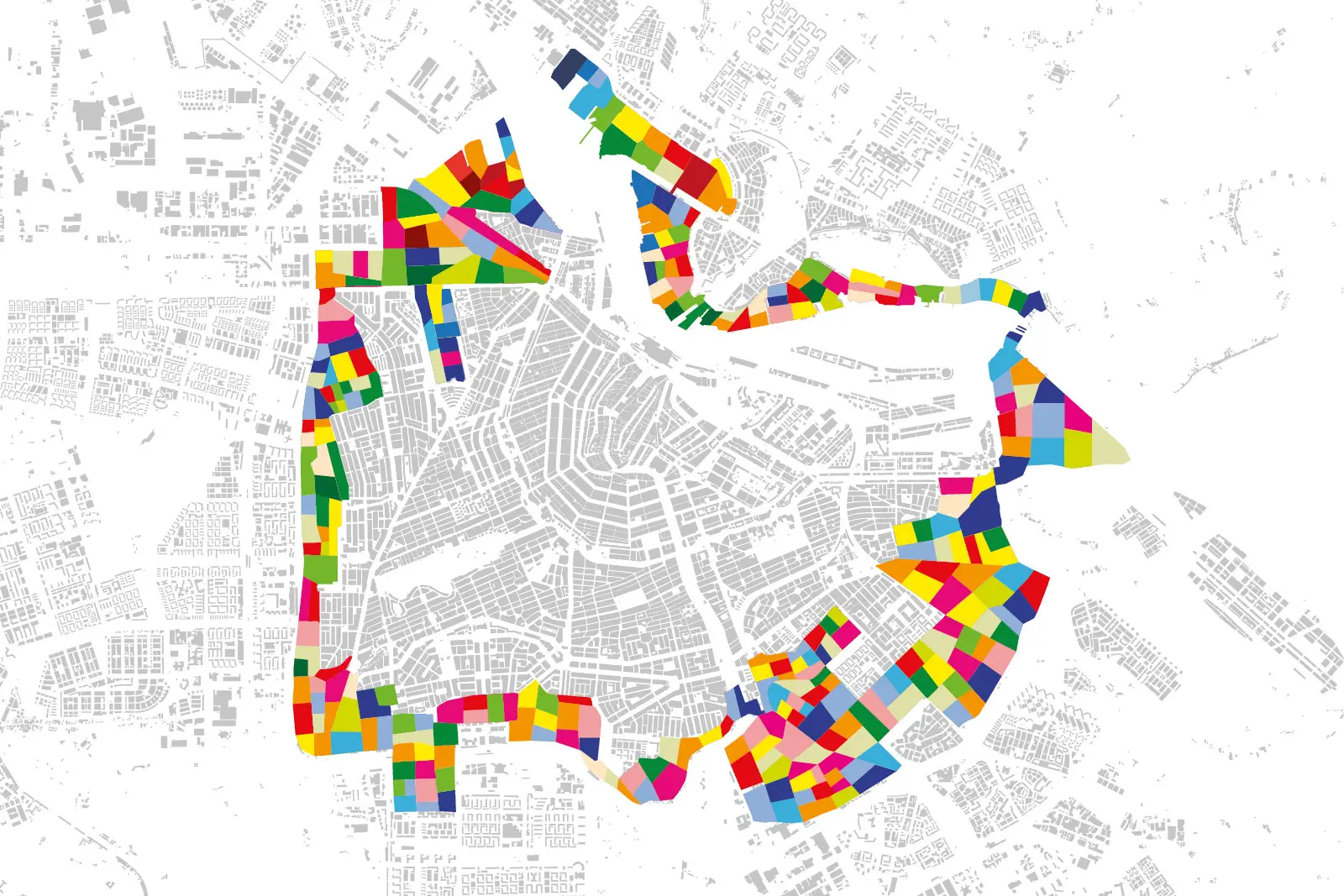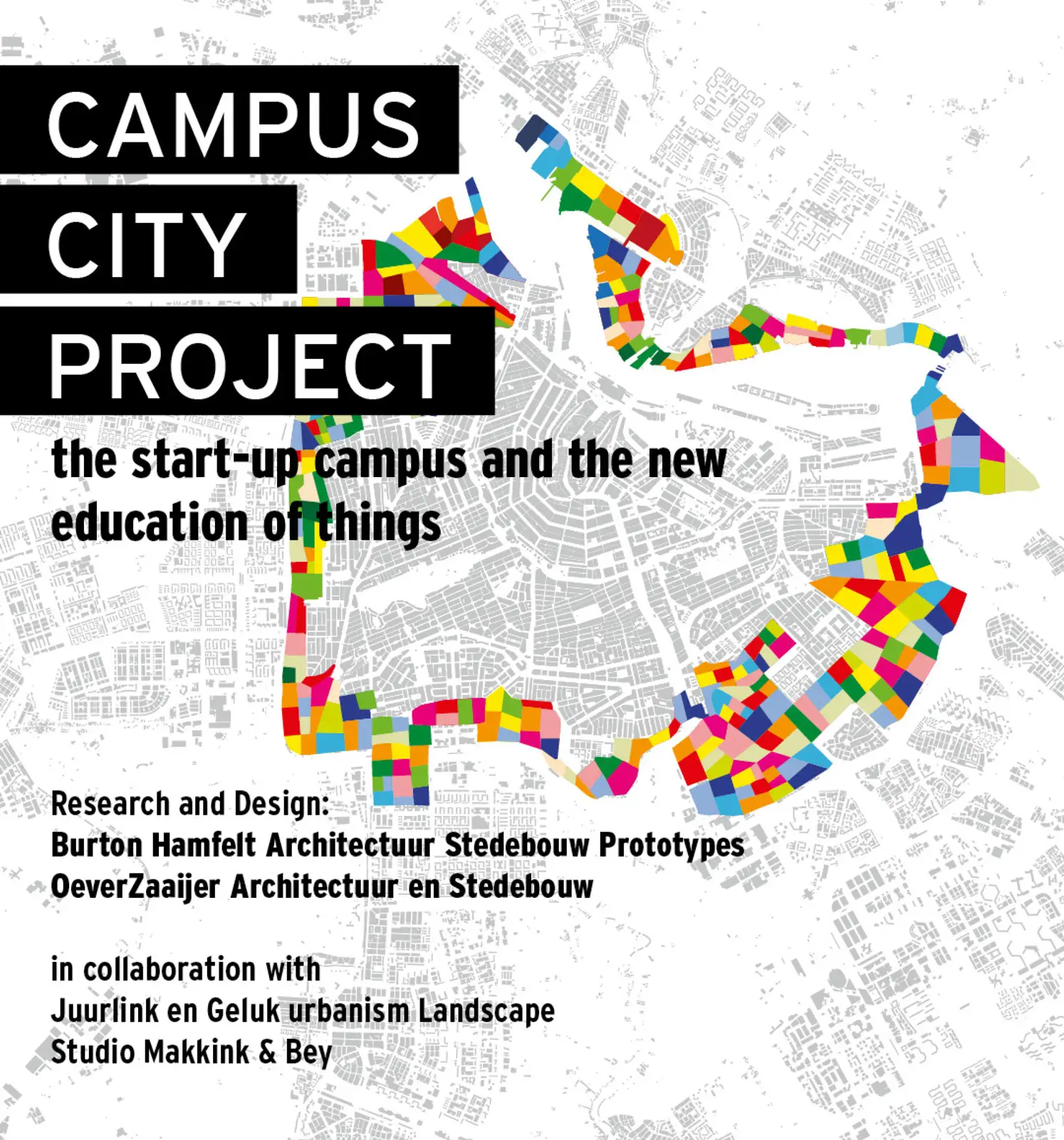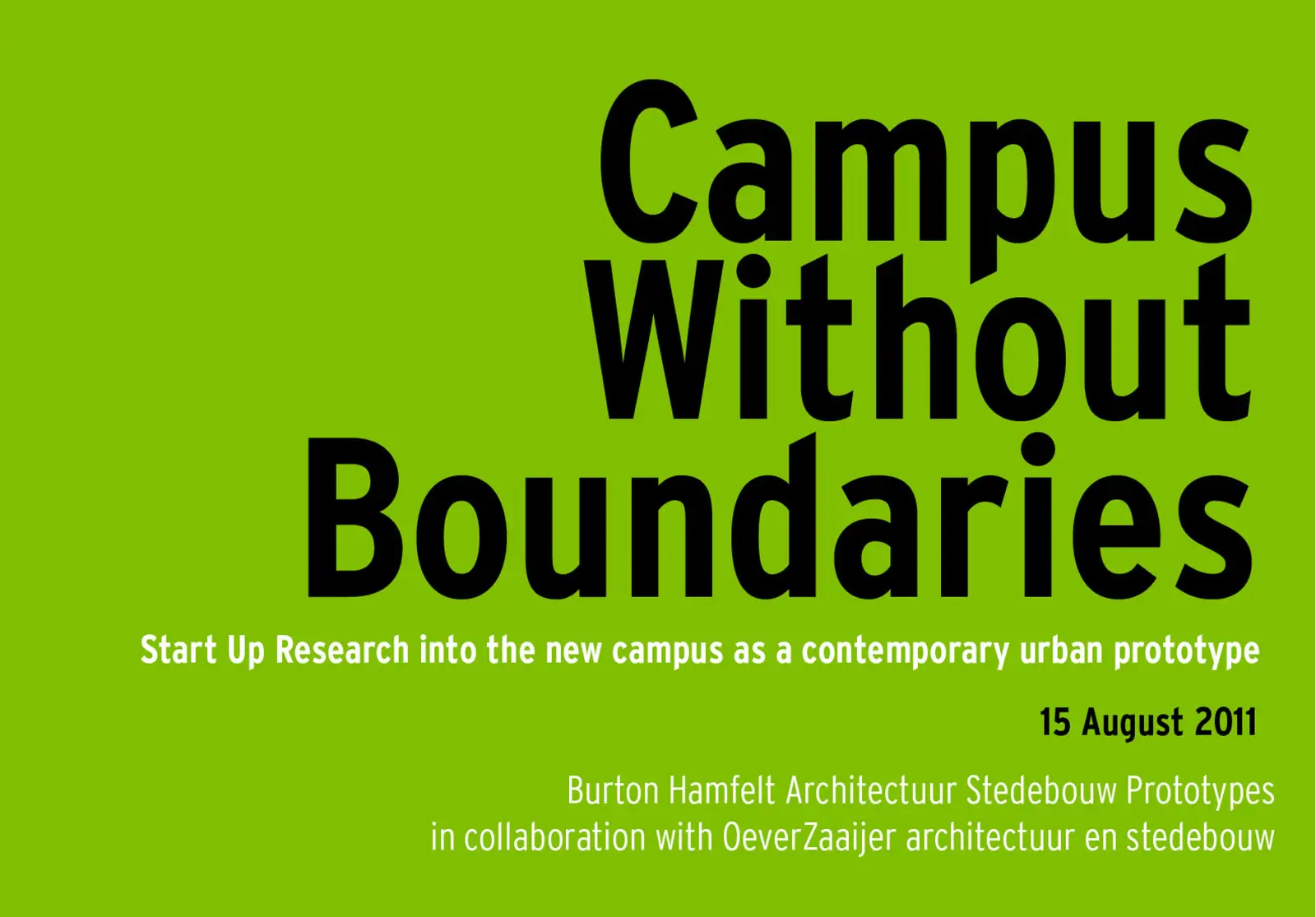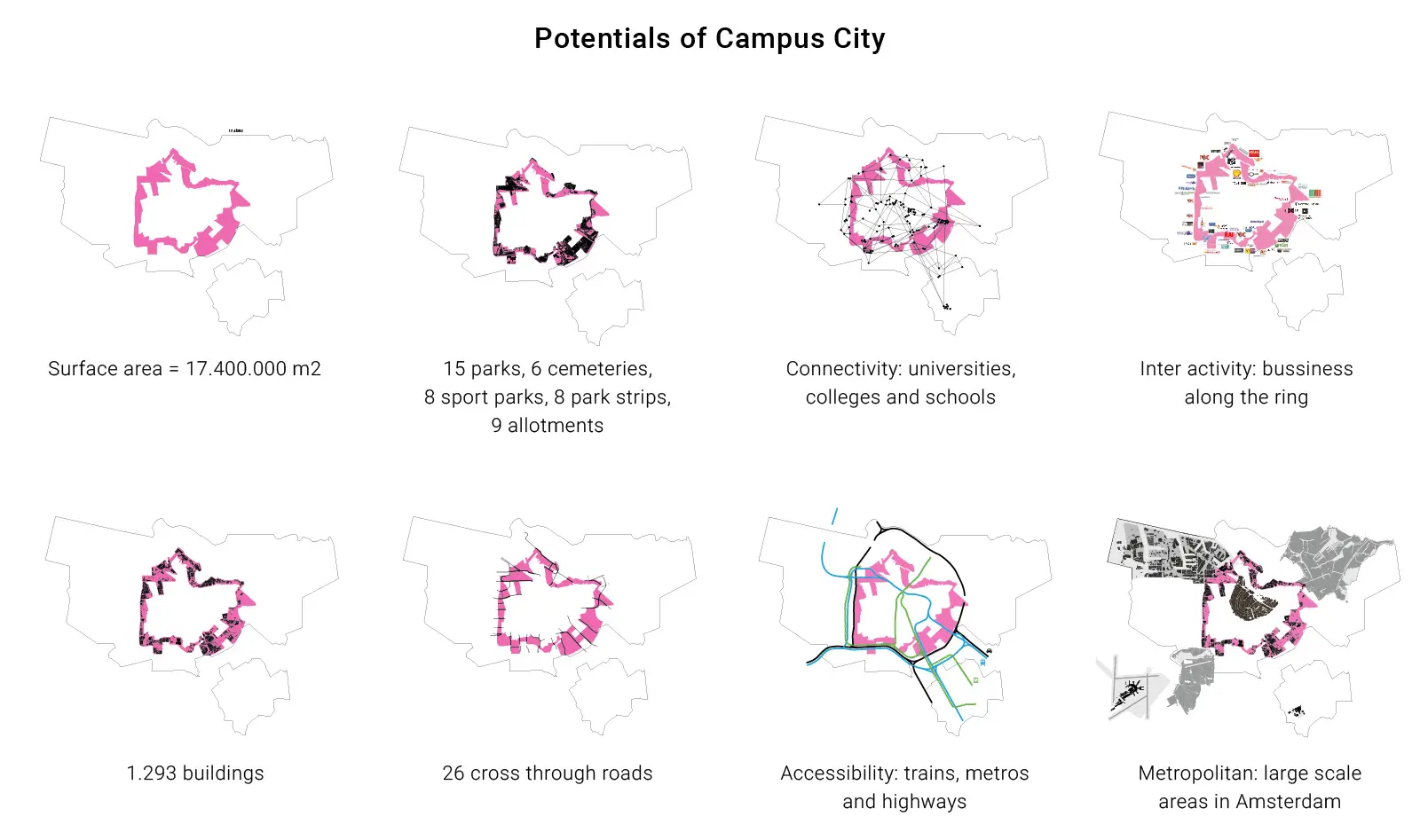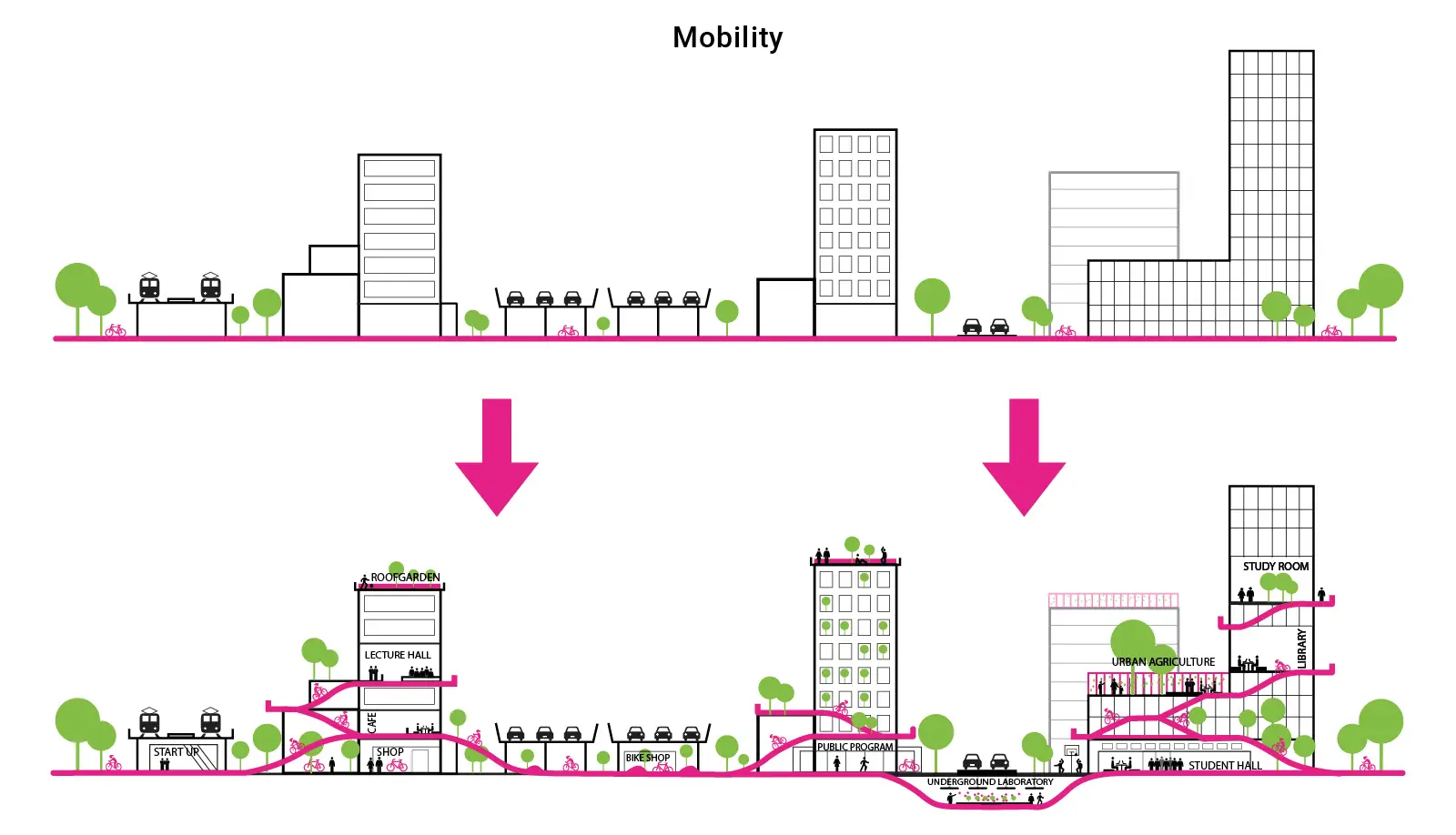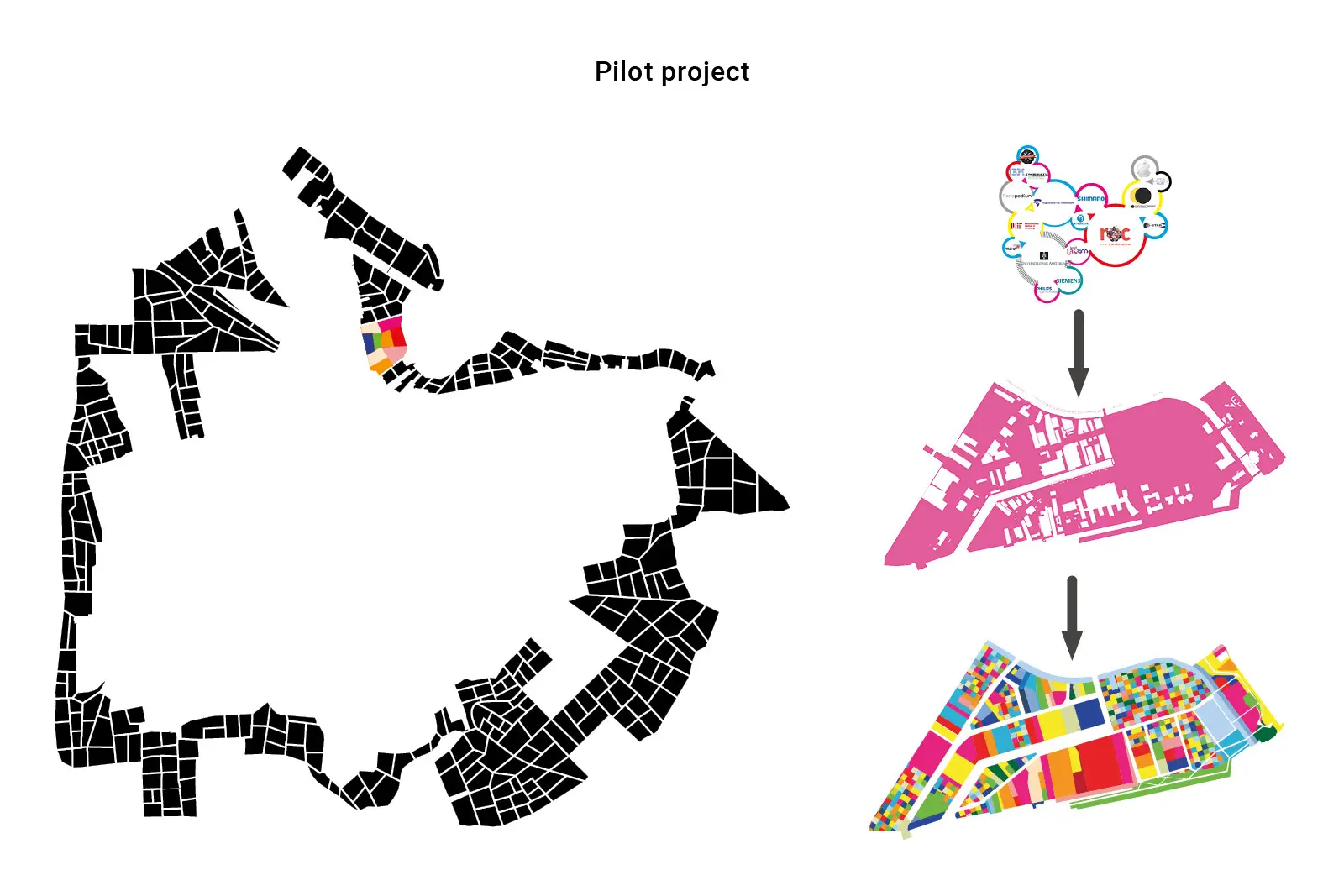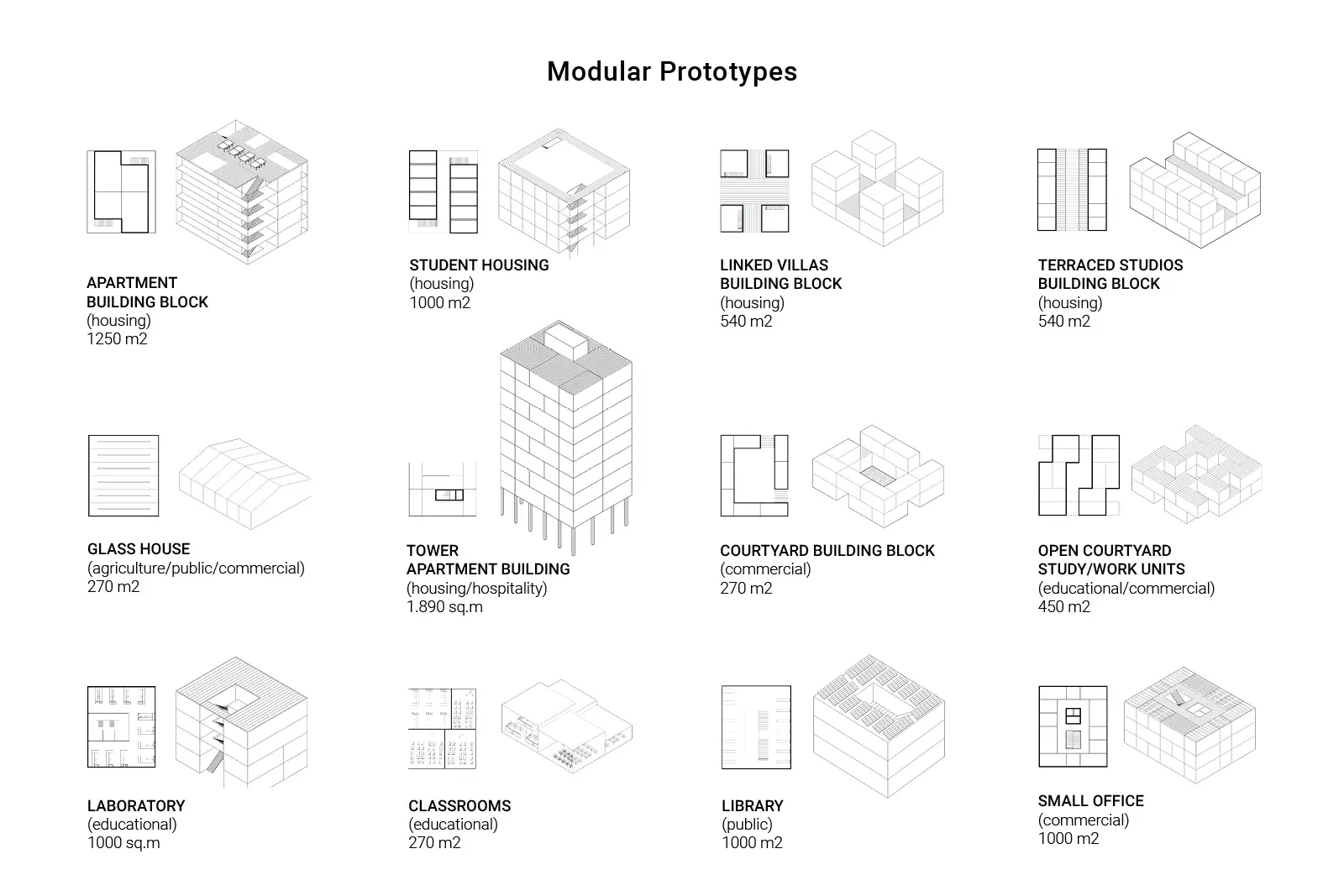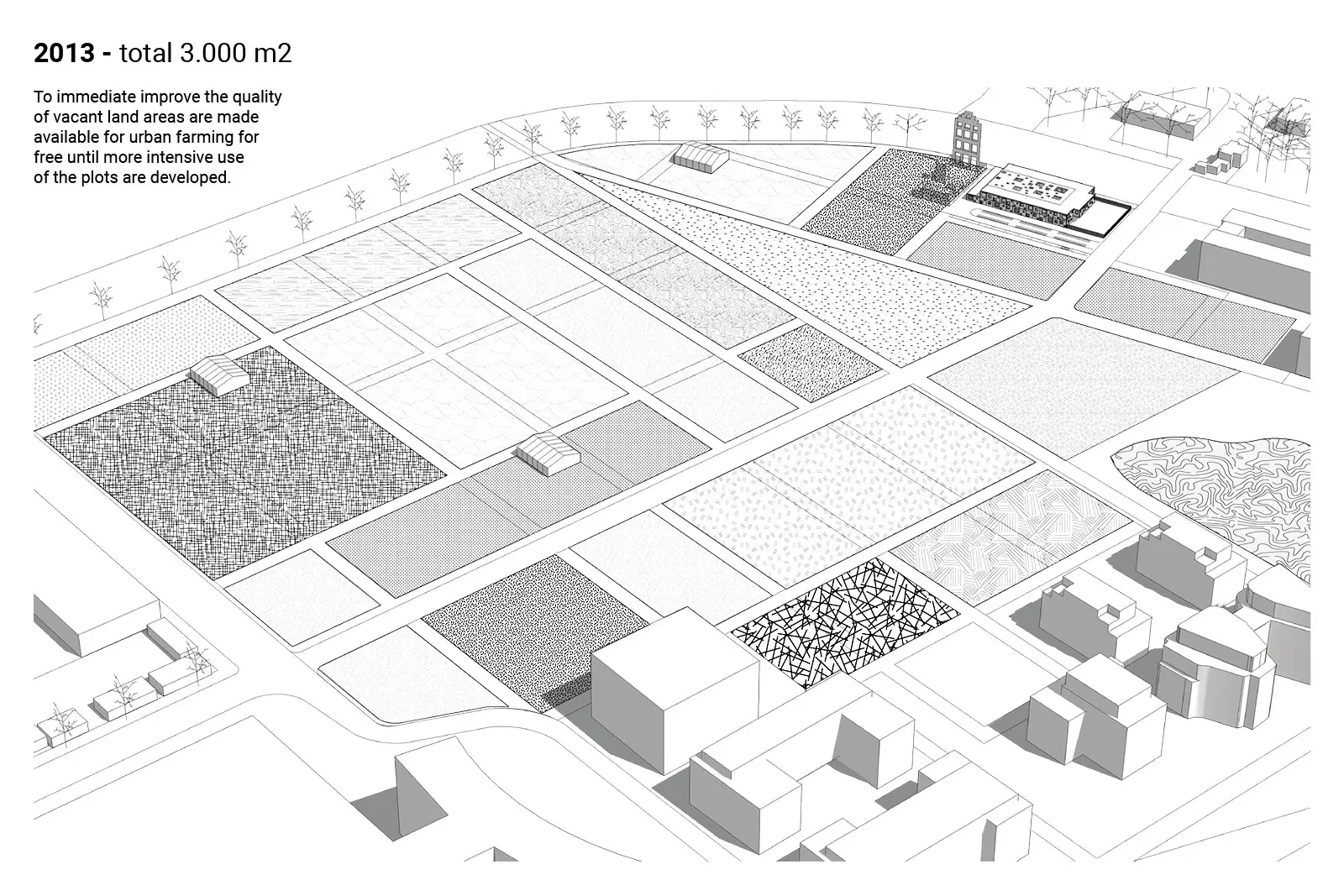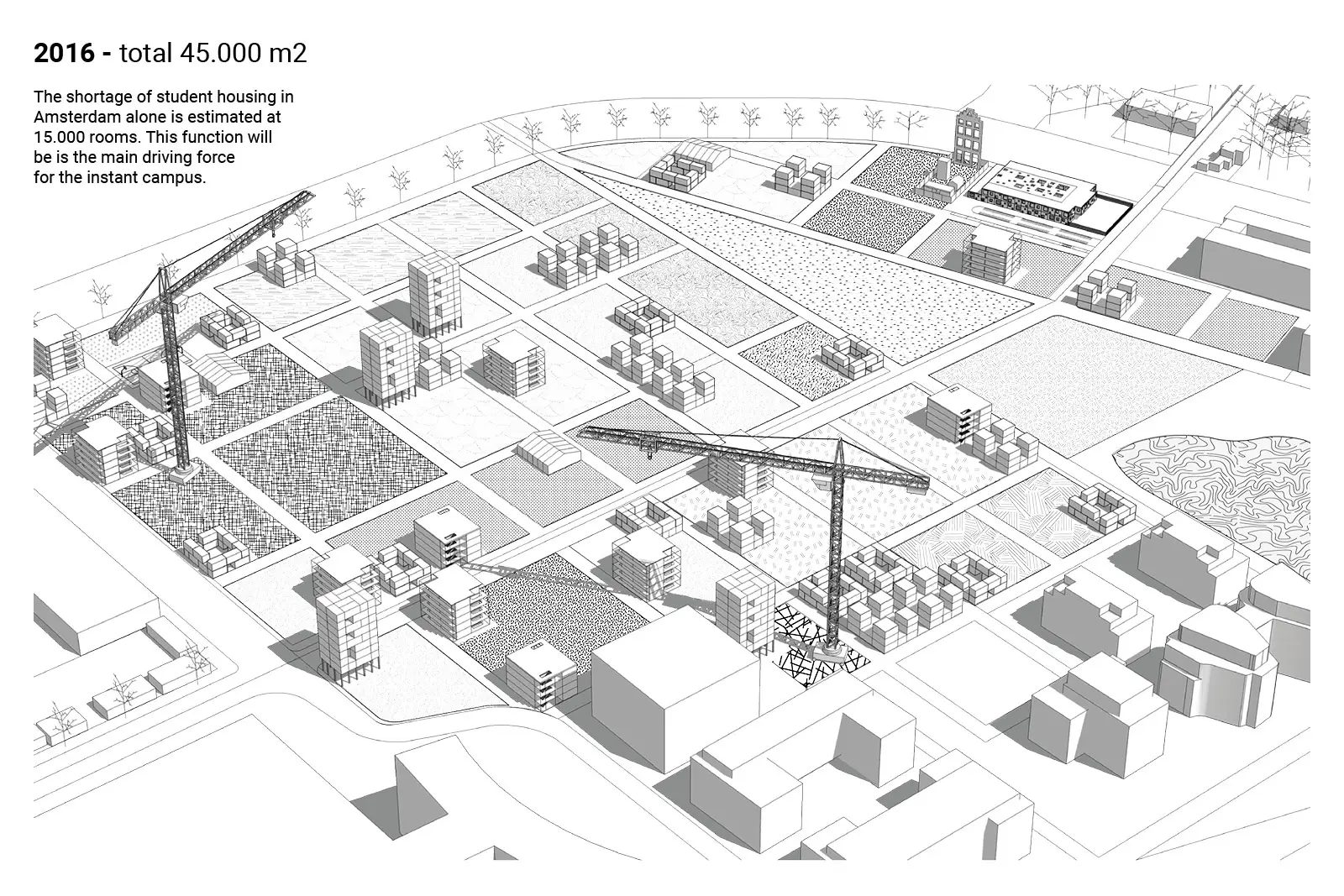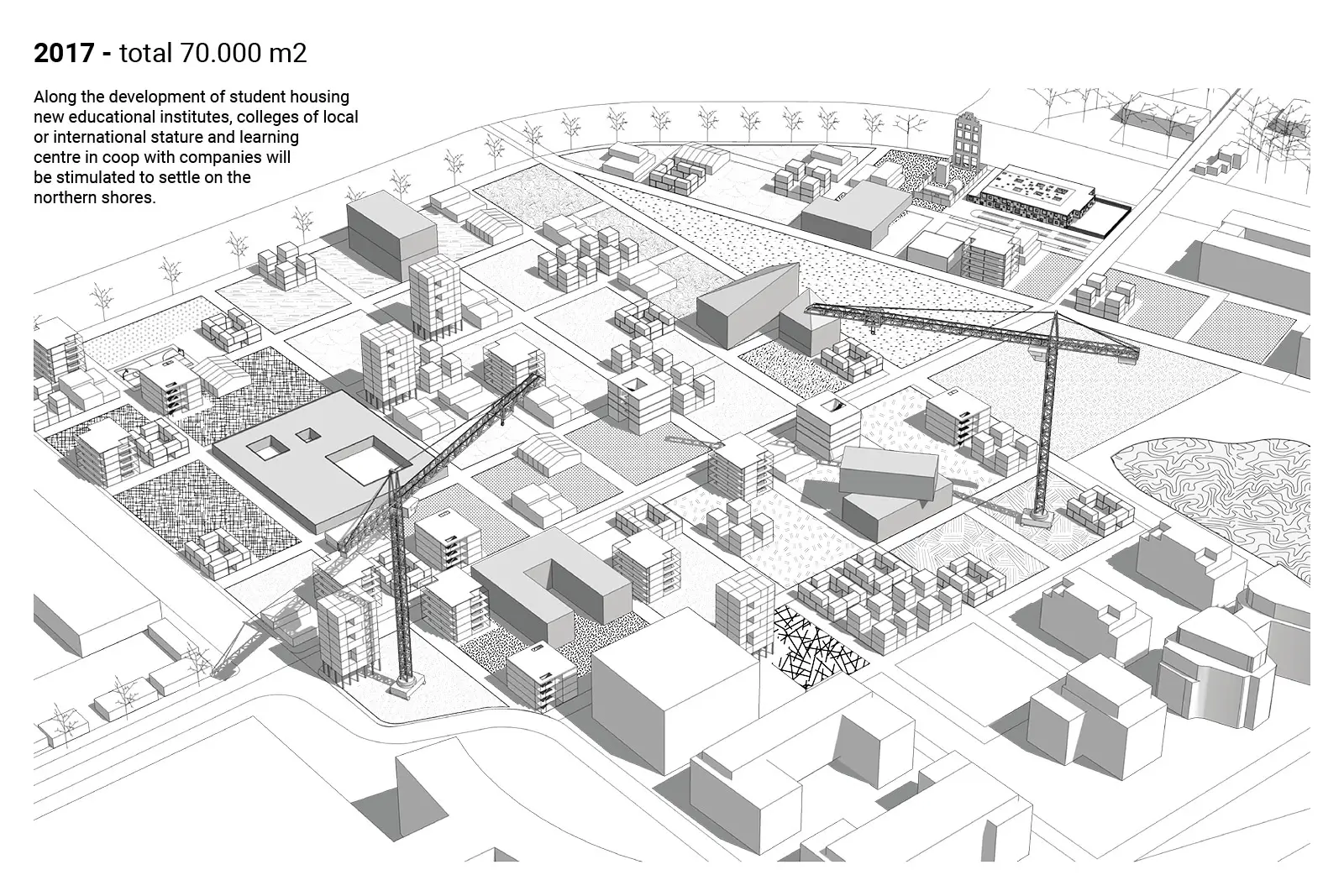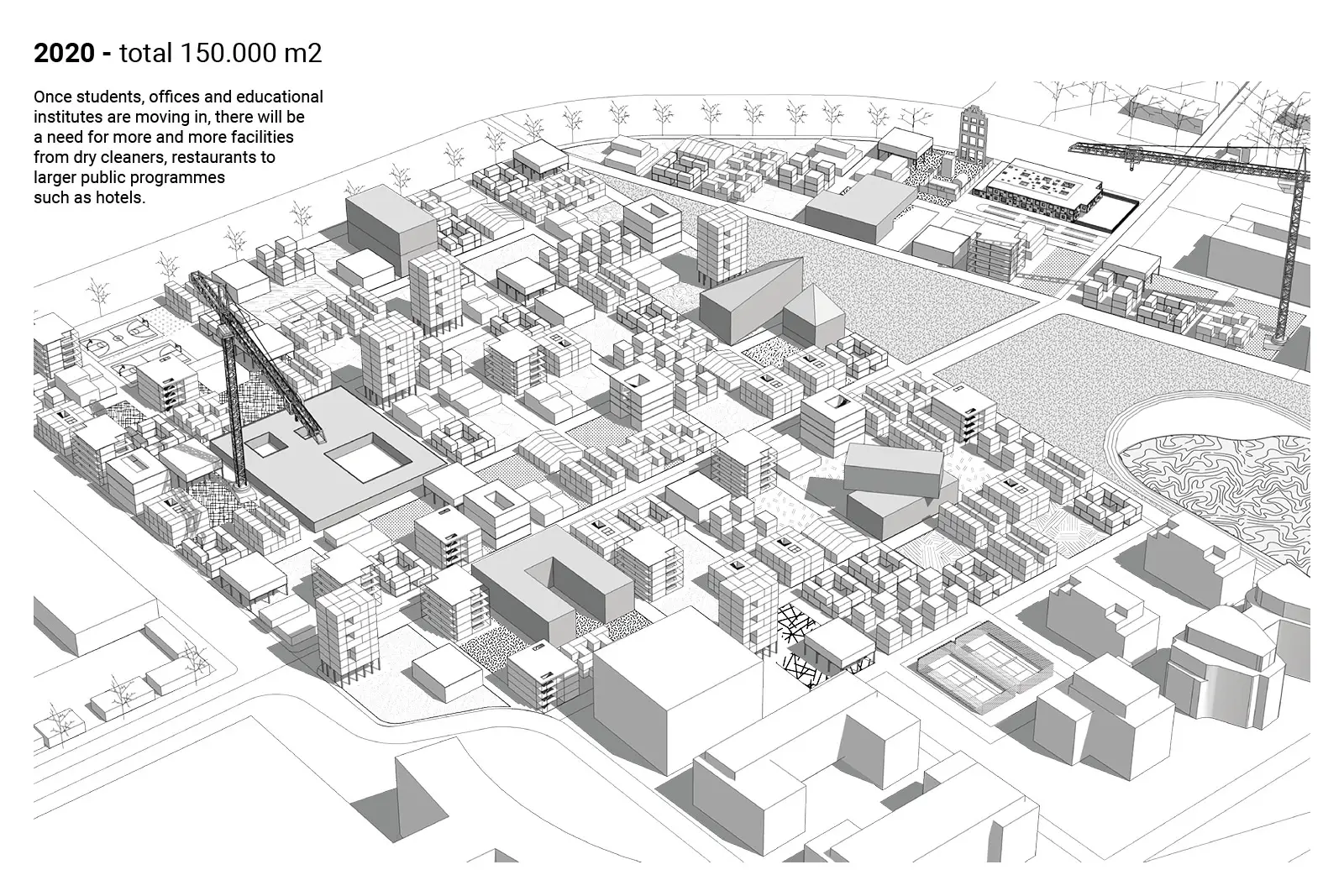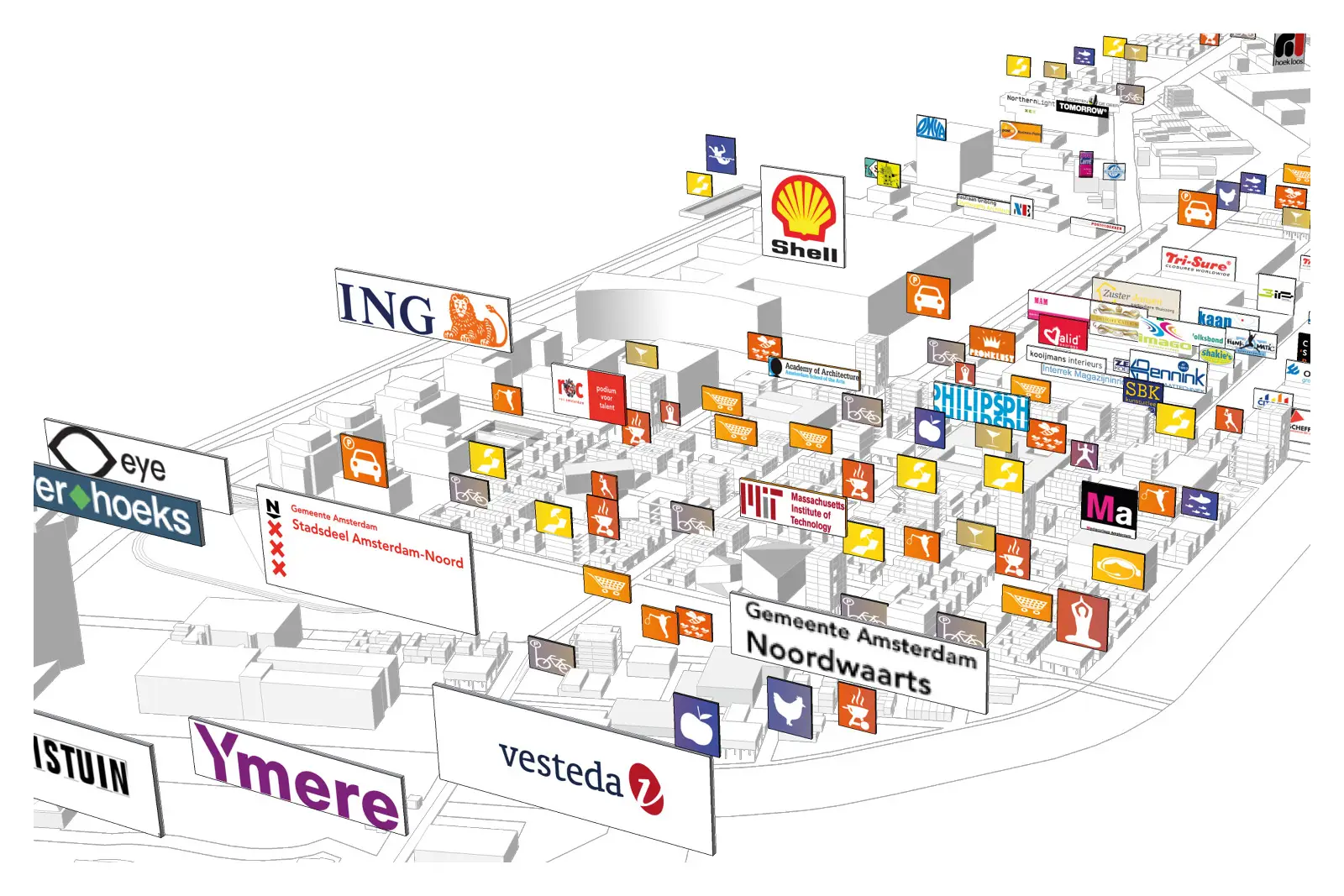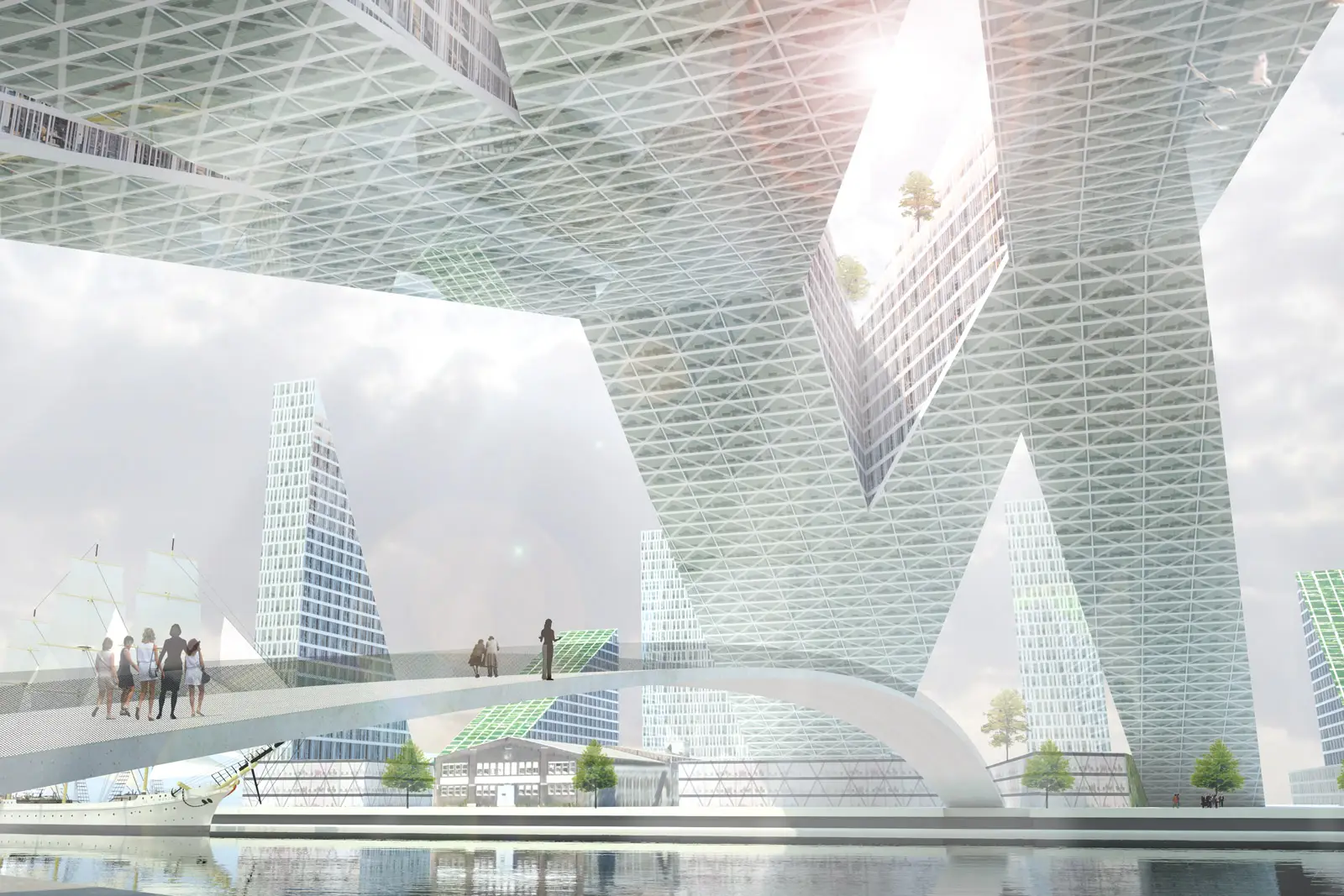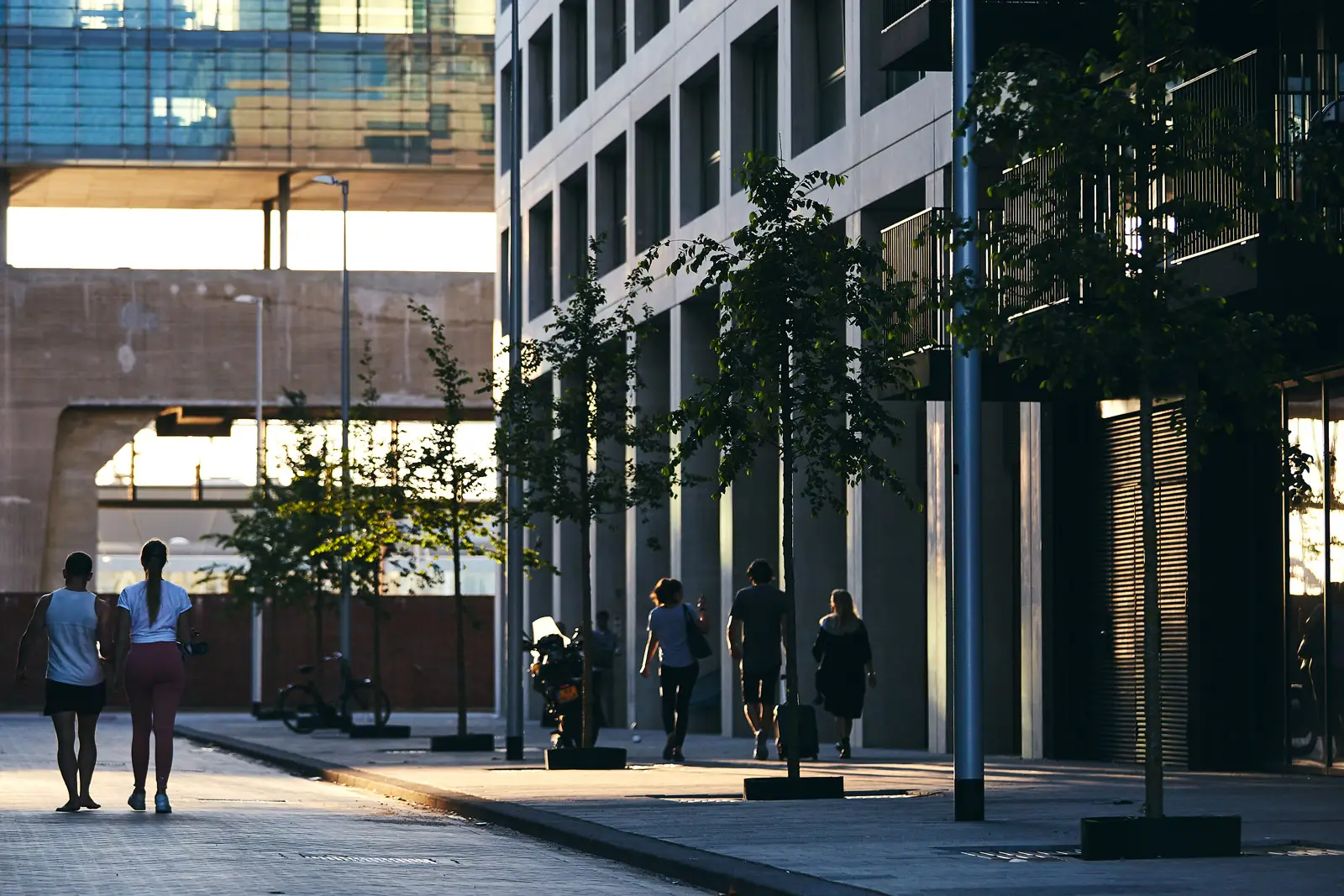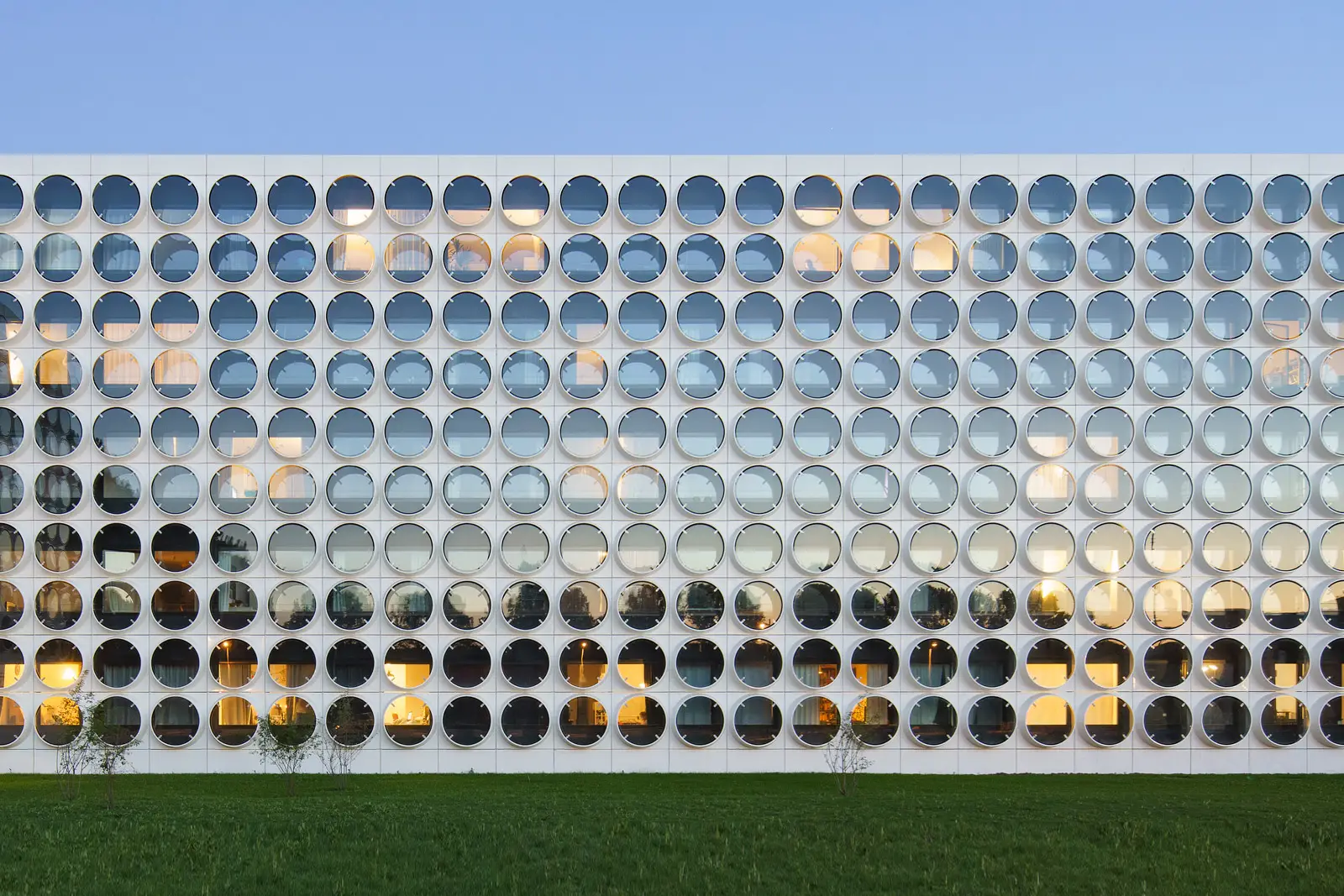With this design research we investigated the potential of the knowledge and innovation-based economy, and what it means for the city of Amsterdam. We imagined a future where new architecture can be the motor for urban growth.
The changing relationship between campus- both academic and corporate- and the city is transforming urban realities. Worldwide, universities and their host cities are evolving into “knowledge cities”. University and corporate campuses thereby not only take on a central role for the cultural, economic, and social development of the city. They are also establishing themselves as laboratories for a new knowledge culture. This is the moment to reconceive the campus. Not as a discrete community but as an urbanity. One that can engage both new forms of cities and living brought about in physical and virtual space. You can’t create such a concept of urbanity solely within the confines of the university’s walls.
Campus City is the follow-up to earlier research and design based project called Campus Without Boundaries. With this project we examined whether the next generation campus can be used as a model for future cities. There is growing evidence that cities with both universities and a strong connection to research and innovation outperform those with a more industrial base. This happens in terms of economic growth and adaptability to change. This project takes this as a starting point. It is an exploration of what a knowledge and innovation-based economy means for the Amsterdam of tomorrow.
We imagined a future where new educational environments, talent, and student entrepreneurship are viewed as economic motors for urban growth and revitalization. The Campus City Project asserts that existing urban conditions around the inner city of Amsterdam, when planned together with new types of educational environments, can kick start an urban transformation process. An urban transformation process that generates new spaces for metropolitan exchange between the inner and outer city. We designed The Campus City Project as a network of new urban spaces. These urban spaces form a continuous interactive band between higher education, businesses, students, and the community.
PROJECT DATA
Research & Design:
OZ
BurtonHamfelt Urban Architecture
Financial assistance:
creative industries fund NL
In collaboration with:
Juurlink en Geluk urbanism Landscape
Studio Makkink & Bey
Team:
John Bosch, Burton Hamfelt,
Ilse Landwehr Johann

